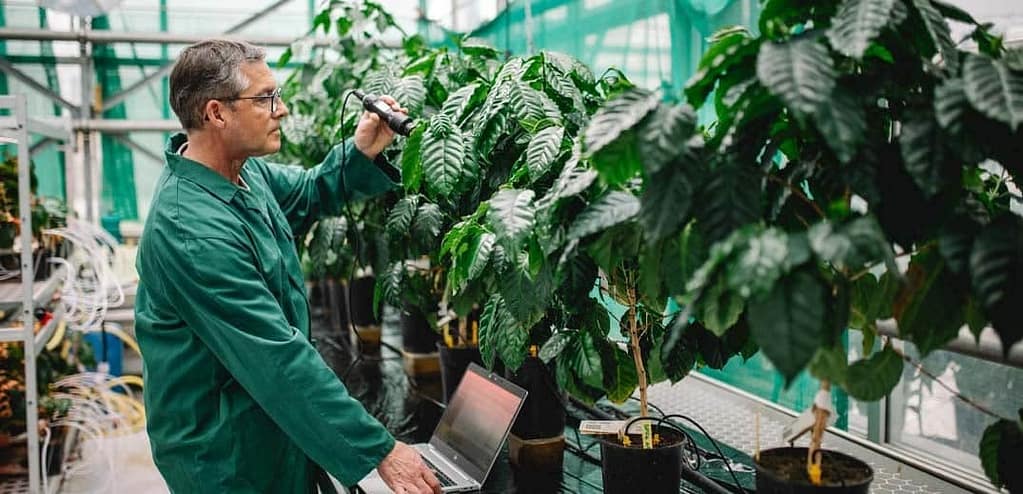[[{“value”:”Image: Nestlé.
Multinational food and beverage company Nestlé has developed a new high-yielding variety of Arabica, which it says is more resilient against the effects of climate change.
The announcement comes as the company continues its mission to help strengthen the coffee supply chain for future generations.
“We are proud to make another important step towards resilient coffee supply chains, ensuring that consumers can continue to enjoy great coffee in the future,” says Head of Nestlé’s Institute of Agricultural Sciences Jeroen Dijkman.
According to the company, recent climate change modelling suggests land suitable to grow Arabica coffee could be reduced by more than 50 per cent by 2050. To help combat the impact of these changes on the coffee supply chain and to ensure sustainably grown coffee is available to future coffee drinkers, the brand is focusing on its agricultural science capabilities.
Using traditional breeding methods, Nestlé’s plant scientists and agronomists have developed Star 4, a novel high-yielding Arabica coffee grown in Brazil. The new variation was specifically selected for its Brazilian coffee taste.
“The new variety is characterised by its larger bean size and Coffee Rust resistance. Our field trials have demonstrated that, using similar inputs, the yields of Star 4 are substantially higher than the two most used Brazilian local varieties, which reduces its carbon footprint,” says Dijkman.
The company has also identified the cultivation process of obtaining ground coffee as a contributing factor to greenhouse gas emissions. It has recognised that by reducing greenhouse emissions from higher coffee yields, plant productivity is improved as well as farming methods.
“Optimising cultivation practices remains vital as they are the primary factor contributing to the environmental impact of a cup of coffee,” says Nestlé Head of Green Coffee Development Marcelo Burity.
The development of Star 4 helps further Nestlé’s Agriculture Framework. The first plants were tested in the two Brazilian coffee regions of São Paulo and Minas Gerais.
In partnership with the Brazilian foundation Procafé, Nestlé was also successful in registering the novel Arabica variety in the country. Beyond the development of Star 4, the company has also developed two Robusta varieties, Roubi One and Roubi Two, which are being rolled out in Mexico.
For more information, click here.
The post Nestlé develops new Arabica variety appeared first on Global Coffee Report.
“}]]


